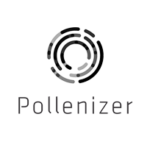My third week here and there are no signs of slowing down. This week’s theme is all about training and development, which is appropriate given this week marks the beginning of Pollenizer’s Academy sessions which are open to members of the public as well as staff in Pollenizer and is a great way to learn about the start-up community.
This week, I have been looking at different companies and how they train and develop their workforce. From these examples I have been looking at different ways of improving how Pollenizer trains and develops its own employees. As I have come to notice though is that examples from other companies are often not applicable to Pollenizer, simply because Pollenizer is so different. This also makes it difficult to apply what I have learnt in uni to the work I do at Pollenizer, simply because it is not mainstream in many ways.
Starting from recruitment, many companies often recruit when they need to recruit and so use techniques associated with this method, yet Pollenizer is always recruiting and must use a different set of techniques. For example, I learnt this week that instead of using conventional HRM software, we use marketing software – Salesforce – as our primary HRM software, simply because it suits our needs more effectively than conventional software. In induction as well, a lot of successful induction strategies are derived from larger organisations which are inducting large groups of employees, yet at Pollenizer, where we only induct one or two people at a time, these large scale induction methods can sometimes be inapplicable.
As such, it is no different with training and development. Running on a shoestring budget means extravagant training programs and rewards must be foregone for more practical and applicable schemes. We have however decided to take a leaf out of Atlassian’s book and utilise a methodical self-assessment peer review program underpinned by the use of the Small Improvements App, something I researched as part of my work this week. I’ll admit, till I working at Pollenizer, I had not been aware there was so much online support and software available to improve processes associated with HRM. This is certainly one thing that has not been touched on in my studies.
I also explored the possibility of Pollenizer being involved in some sort of community service or charity work. Based on my research I had in mind something more traditional like working at a volunteer organisation, yet after talking to Claudia, she suggested a startup clinic, where we hold a free session for fledgling startups on how to see their idea through and the more practical realities behind success such as cash flow or how to conduct HRM. This in hindsight, was an obvious choice and would suit the Pollenizer team very well. I certainly hope it takes off.
Perhaps the most interesting part of the week has been the pivot on performance reviews within Pollenizer. Having come to the conclusion that the current system is not working for a variety of reasons, we decided to split performance reviews into a continuous conversation throughout the year, with different themes for each month as opposed to one or two performance reviews throughout the year. This was further enhanced with the integration of Wooboard into the scheme as a system for KPIs. The most fascinating aspect about this discussion was watching how the idea developed and transformed in a relatively short amount of time. After 3 weeks here, it has become clear that were I to work anywhere else, the mindset and culture shift would be enormous.
